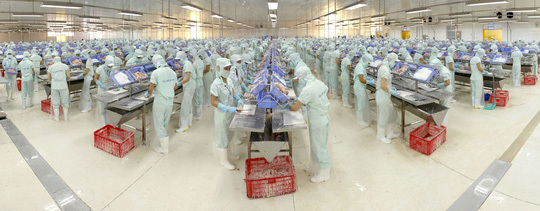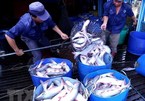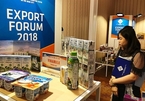The Halal Certification Office in Tan Binh district in HCMC confirmed that hundreds of Vietnam’s businesses have come to the office to receive training and follow procedures to obtain certificates on meeting Halal standards for Muslims (with no pork, dog meat, alcoholic ingredients and prohibited additives in the content).

The businesses include big names such as Orion Vina Food, Vinamilk, Nestle Vietnam, Cai Lan Vegetable Oil, Tien Giang Food and Friesland Campina. Many certificates were granted to seafood companies, including Minh Phu, An Phu and Hung Ca.
Nguyen Thi Ngoc Hang, head of marketing division of the office, said Vietnam has great advantages in exploiting Halal market because it has abundant farm and seafood materials.
|
The businesses include big names such as Orion Vina Food, Vinamilk, Nestle Vietnam, Cai Lan Vegetable Oil, Tien Giang Food and Friesland Campina. Many certificates were granted to seafood companies, including Minh Phu, An Phu and Hung Ca. |
“Businesses need to be sure that there is no pork, or dog meat, and use the least amount of additives as possible to register for certificates. Raw, unprocessed products can also easily get Halal certificates,” Hang said.
Zukarine Shah Zainal Abidin from Halal International Selangor told the Vietnamese press on the sidelines of the workshop discussing opportunities of bringing products to Malaysia, that a Halal certificate sets stricter requirements than other certificates, but Vietnam’s products still can enter the markets.
There are many Vietnam’s products exported to serve clients who don’t have high Halal requirements. However, in long term, he said Vietnamese enterprises should obtain Halal certificates to penetrate Islamic markets.
He noted that Vietnam’s products available in Islamic markets remain modest compared with the countries with developed Halal industries. Meanwhile, the market potential is great.
It is estimated that the global Halal market would be worth $30.6 trillion by 2030, including $1.1 trillion in Asia Pacific and $228.5 billion in Malaysia. The Islamic population is expected to increase from 1.5 billion in 2010 to 2.7 billion by 2050. Indonesia tops the list of the markets with highest demand for food.
The Ministry of Industry and Trade (MOIT) has also advised Vietnam’s enterprises to pay attention to Nepal, which is witnessing consumption increases.
The current trade turnover between Vietnam and Nepal remains modest, $26.7 million in 2018, though the two countries began establishing diplomatic relations in 1975 already.
As for DPRK, many Vietnamese enterprises began exporting washing liquid, soaps, shampoo and drinks 5-7 years ago. Two of the biggest exporters are Bidrico (drinks) and My Hao (cosmetics).
An analyst said this is not a choosy market and Vietnam’s high-quality products can compete well there. Dang Hoang Giang, deputy chair of the Vietnam Cashew Association, also said DPRK is a new potential market that Vinacas members are targeting.
Mai Lan

CPTPP gives great chances for Vietnam’s tra fish exports
The Comprehensive and Progressive Agreement for Trans-Pacific Partnership (CPTPP) is opening the door wide for Vietnamese tra fish to enter the markets of 10 other members of the deal.

Halal food exports offer Vietnam big opportunity
Halal food is a promising export product for Vietnamese companies to pursue though they may face challenges.
 Meeting barriers in loyal markets, Vietnam’s businesses have begun eyeing Nepal, the Democratic People’s Republic of Korea and Islamic countries in an effort to diversity export markets.
Meeting barriers in loyal markets, Vietnam’s businesses have begun eyeing Nepal, the Democratic People’s Republic of Korea and Islamic countries in an effort to diversity export markets.